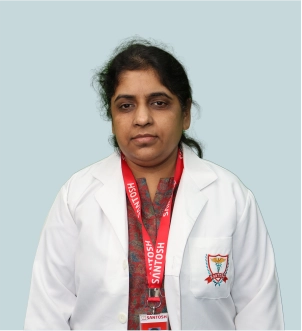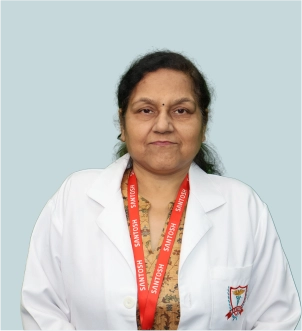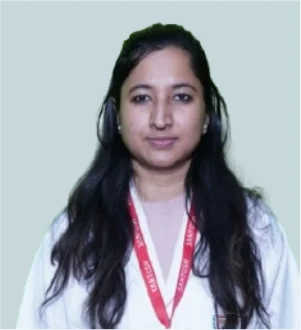
The purpose of postgraduate (PG) education in Pathology is to train and develop specialists who can provide high-quality healthcare and contribute to the advancement of scientific knowledge through research and training. This program aims to standardize Pathology teaching at the postgraduate level nationwide, ensuring uniformity in education and producing skilled professionals with the appropriate expertise.
The PG curriculum in Pathology focuses on equipping students with the necessary skills and knowledge to handle and process various samples in histopathology, clinical pathology, microbiology, biochemistry, and transfusion medicine. The students are trained in the general principles and methodologies of these disciplines, allowing them to effectively analyze and interpret diagnostic samples.
To achieve the defined outcomes of the program, this document serves as a guideline for both teachers and learners. It has been prepared by subject-content specialists, and the Reconciliation Board of the Academic Committee has strived to maintain uniformity without compromising the purpose and content of the document. While some compromises have been made in terms of syntax to preserve the document's purpose and content, the domains of learning, categorized as "competencies," have been retained.
The document provides a framework for educators to structure their teaching methodologies and assessments, ensuring that students acquire the necessary knowledge and skills outlined in the defined competencies. By following these guidelines, teachers can maintain a consistent and standardized approach to Pathology education, ultimately benefiting the students and the field as a whole.
Additionally, learners can utilize this document as a reference to understand the expectations and requirements of the program. It serves as a roadmap for their learning journey, helping them align their studies and assessments with the defined competencies.
Overall, the purpose of this document is to establish a clear framework for PG education in Pathology, enabling the creation of well-trained specialists who can provide high-quality healthcare services, contribute to scientific research, and meet the needs of the healthcare system.
Click here if you want to know about course fees.
Program Objectives
Assessment:
There shall be four theory papers:
Practicals/Clinical and Oral/viva voce Examination:
Teaching and Learning Methods:
In the MD Pathology program, students are involved in a variety of activities to enhance their learning and practical skills. These activities include:
These activities provide a well-rounded education and practical experience to MD Pathology students, enabling them to develop their diagnostic skills, research capabilities, and communication abilities.

Professor & HOD

Professor

Associate Professor

Associate Professor

Assistant Professor

Assistant Professor

Assistant Professor

Assistant Professor
The career prospects for individuals with an MD in Pathology are diverse and offer a range of opportunities in various sectors. Here are some of the potential career paths for MD Pathology graduates:
Clinical Practice: Many MD Pathology graduates choose to work as clinical pathologists in hospitals, diagnostic laboratories, or private clinics. They specialize in diagnosing diseases by examining patient samples such as tissues, blood, and other bodily fluids. Clinical pathologists play a vital role in patient care and collaborate with other healthcare professionals to provide accurate diagnoses and treatment recommendations.
Academic and Research Positions: MD Pathology graduates can pursue careers in academia and research. They can work as faculty members in medical colleges and universities, conducting research, teaching pathology to medical students, and mentoring aspiring pathologists. They may also engage in scientific research, exploring new diagnostic techniques, studying disease mechanisms, and contributing to advancements in the field.
Pathology Administration: Some MD Pathology professionals take on administrative roles within pathology departments. They oversee laboratory operations, quality control, and management of diagnostic services. Pathology administrators ensure smooth functioning of the department, adherence to regulatory guidelines, and effective utilization of resources.
Forensic Pathology: MD Pathology graduates with a specialization in forensic pathology can work as forensic pathologists, conducting autopsies and determining the cause and manner of death in medico-legal cases. They may collaborate with law enforcement agencies, provide expert testimony in court, and contribute to forensic investigations.
Pharmaceutical and Biotechnology Industries: MD Pathology professionals can find opportunities in the pharmaceutical and biotechnology industries. They may work in research and development, clinical trials, or drug safety and pharmacovigilance. Their expertise in pathology enables them to contribute to drug discovery, development, and evaluation processes.
Public Health: MD Pathology graduates can contribute to public health initiatives by working in government health departments, public health agencies, or non-profit organizations. They may be involved in disease surveillance, outbreak investigations, epidemiological studies, and implementation of public health programs.
Consultancy: Experienced MD Pathology professionals may establish their own consultancy firms, providing specialized diagnostic and consulting services to healthcare institutions, laboratories, or legal entities. They may offer expertise in areas such as histopathology, cytopathology, or molecular pathology.
Global Health and Medical Missions: Some MD Pathology professionals choose to work in underserved areas or participate in medical missions to provide pathology services in resource-limited settings. They contribute to disease diagnosis, public health initiatives, and capacity building in communities with limited access to healthcare.
Overall, the career prospects for MD Pathology graduates are vast and varied. They can pursue clinical practice, research, teaching, administration, forensic pathology, industry roles, public health, consultancy, and contribute to global health initiatives. The field of pathology offers opportunities for professional growth, specialization, and making a significant impact on patient care and public health.
©2026 Santosh Deemed to be University | Designed, Developed & Managed by : HashTAGit. Last updated on 19th Feb 2026